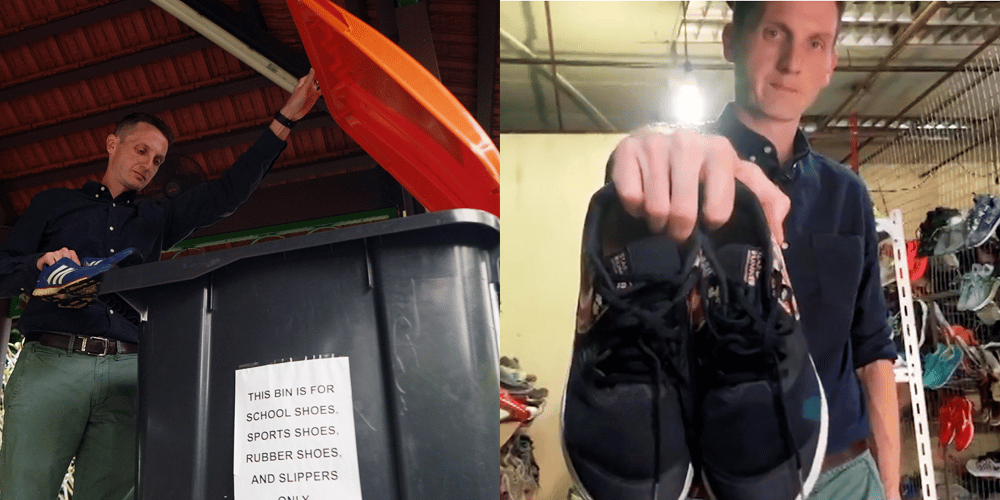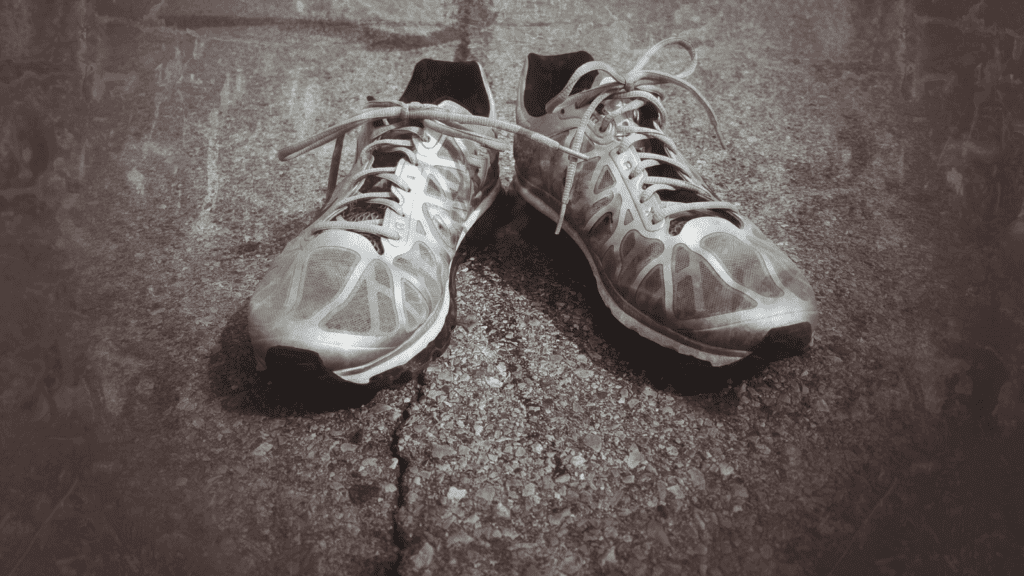Dow’s Singapore Shoe Recycling Program authenticity under serious doubt following Reuters investigation.
An investigation by Reuters has brought into question the legitimacy of Dow’s shoe recycling program in partnership with the Singapore government, designed to recycle donated shoes into building materials for playgrounds and running tracks. The report was published on Sunday, February 25th, amidst claims by environmental groups that some chemical companies are overstating their recycling capabilities to avoid proposed regulations aimed at curbing the vast amounts of plastic waste generated by single-use packaging and fast fashion.
RELEVANT SUSTAINABLE GOALS


Sneakers Donations Intended for Playgrounds and Tracks Exported Instead
SportSG and Dow launched a shoe recycling project in 2020, called ‘Others see an old shoe. We see the future.’, with the goal of transforming 300,000 pairs of used sports shoes into playgrounds, jogging tracks, and fitness corners. Although the initiative was supposed to run for three years, it became a permanent shoe collection drive in 2021. But a six-month investigation by Reuters revealed that none of the 11 pairs of shoes planted with GPS trackers in donation bins across Singapore were repurposed as intended.

Reuters investigation discovered that the shoes with GPS trackers were shipped to Batam Island in the Singapore Strait, then transported to Jakarta and other Indonesian regions, where they were sold in second-hand stores. While Reuters was able to retrieve three pairs from bazaars in Jakarta and Batam, the remaining pairs were located in remote Indonesian locations that Reuters could not physically access. Although the sample size was limited, the fact that none of the shoes reached a Singaporean recycling facility suggests system vulnerabilities. Dow stated that the project is progressing, and a sports facility in western Singapore is set to use recycled shoe material for its surfaces.
Dow claims to have recycled shoes for its Singapore project, but a Reuters investigation reveals that most of the donated shoes were sold in second-hand clothing shops in Indonesia instead. The investigation used GPS trackers in 11 pairs of shoes, with none ending up as part of the promised recycling program. While Dow cites the use of recycled shoe material in the construction of sports facilities, Reuters could not verify these claims due to ongoing construction. Dow declined to reveal how many shoes were recycled, and there were no explanations of procedures to prevent shoe exportation or diversion. The investigation questions corporate recycling initiatives and the need for greater transparency and accountability to tackle plastic pollution.
Lesson Learned: Innovation in Circular Models and Due Diligence
The issue does not lie in the fact that the program encountered failures and loopholes, as setbacks are a natural part of the innovation process. The problem lies in companies trying to gain visibility, awards, and accolades for programs that have not yet proven viable. Undoubtedly, new circular models need to be tested and tried. Although there will be significant errors and mistakes, especially in sectors like waste management, which are fraught with informal workers and multiple stakeholders, this shouldn’t prevent us from trying.
The key takeaway here is not to stop trying, but to allocate resources that would be dedicated to profitable departments, such as digital transformation, to environmental impact. It should be your Due Diligence and Reporting team that finds loopholes in your projects, not the media. Ultimately, environmental costs will impact your bottom line one way or another. And when your team has discovered a viable and effective solution, please give it the attention it deserves, so others can follow suit.
Lastly, for those who have worked on this project and feel disheartened by the news, keep fighting the good fight to turn your business around. Don’t give up, because if we want companies to change, we need changemakers like you in the company.
You may also be interested in :
Piles of Garbage In Batargebang 40 Meters, Equivalent To A 16 Floor Building


